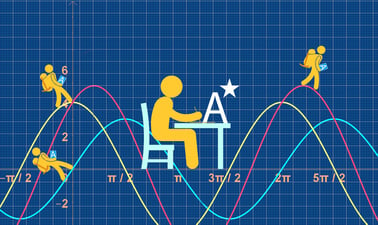This course by Imperial College London is designed to help you develop the skills you need to succeed in your A-level maths exams.
The course is most appropriate to the Edexcel, AQA, OCR and OCR(MEI) papers. You will investigate key topic areas to gain a deeper understanding of the skills and techniques that you can apply throughout your A-level study.These skills include:
- Fluency – selecting and applying correct methods to answer with speed and efficiency
- Confidence – critically assessing mathematical methods and investigating ways to apply them
- Problem solving – analysing the ‘unfamiliar’ and identifying which skills and techniques you require to answer questions
- Constructing mathematical argument – using mathematical tools such as diagrams, graphs, logical deduction, mathematical symbols, mathematical language, construct mathematical argument and present precisely to others
- Deep reasoning – analysing and critiquing mathematical techniques, arguments, formulae and proofs to comprehend how they can be applied
Over seven modules, covering an introduction to functions and their notation, sequences and series and numerical methods testing your initial skillset will be extended to give a clear understanding of how background knowledge underpins the A-level course.
You’ll also be encouraged to consider how what you know fits into the wider mathematical world.


